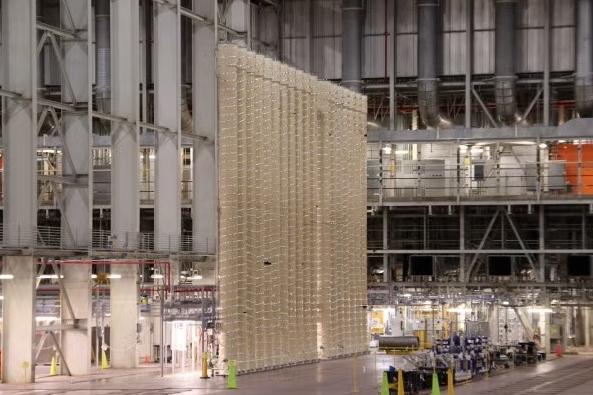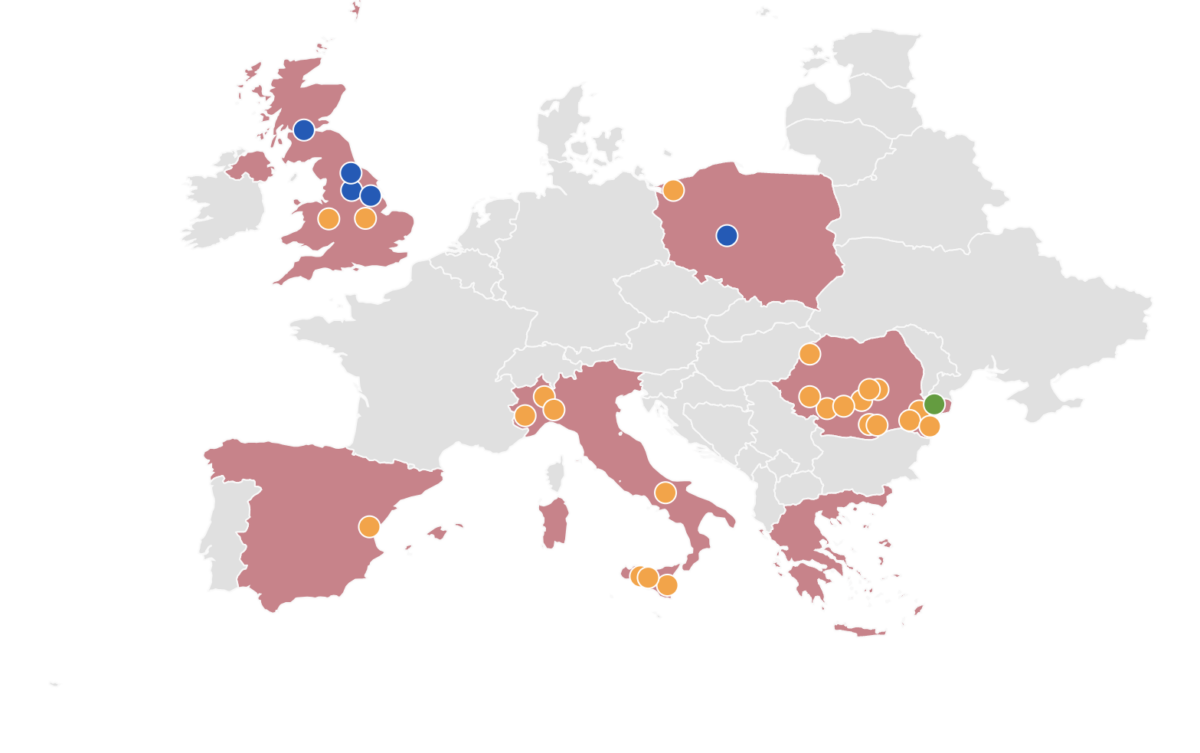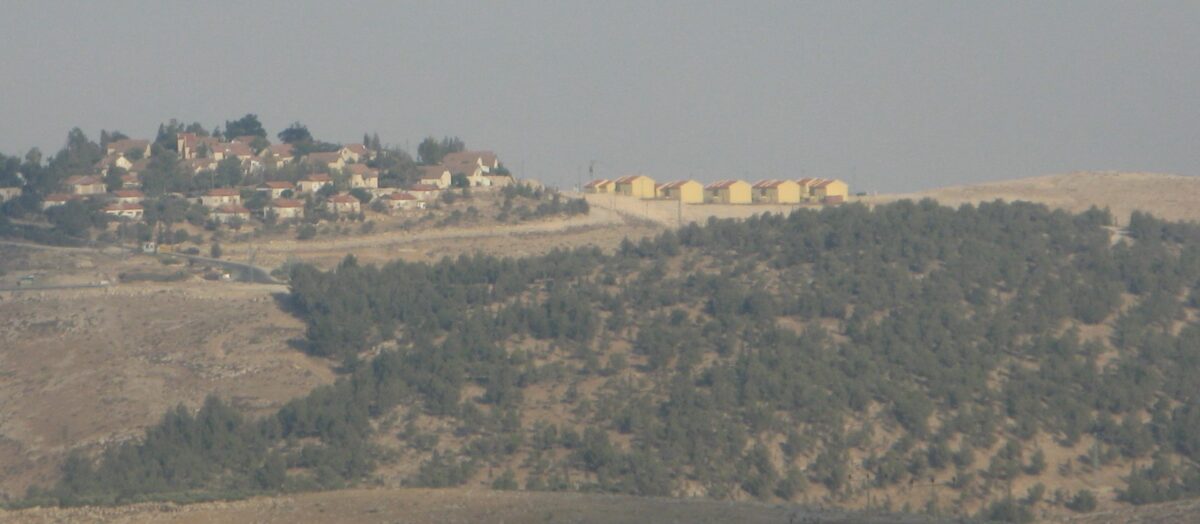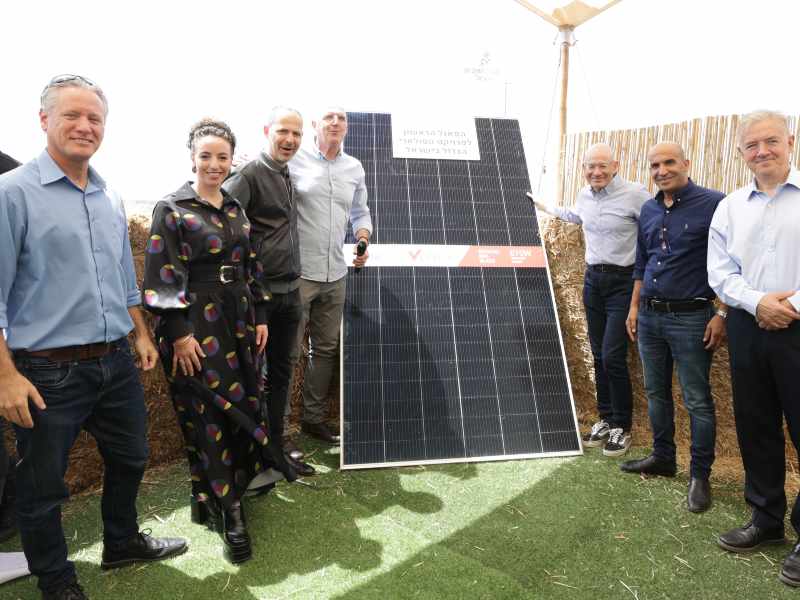
Centrus recently secured more than $2bn in contingent purchase commitments from customers to support future production of low-enriched uranium (LEU), as well as two awards from the US Department of Energy (DOE) aimed at enrichment and deconversion of high-assay, low-enriched uranium (HALEU).
“Today’s investment will jump-start what we hope will be a multi-billion dollar public and private commitment to reestablishing America’s uranium enrichment capacity at scale while reducing our dependence on foreign nations – deploying American technology, built by American workers, supported by an American supply chain,” said Centrus President & CEO Amir Vexler. “The all-American solution we are offering represents the best path forward to ensure a reliable fuel supply for today’s reactors, support the deployment of next generation reactors, and meet America’s enduring national security needs for enriched uranium. Most importantly, it puts us in position to execute an expansion quickly.”
He added: “We have always said that restoring U.S. enrichment capacity at scale requires a public-private partnership, including a robust federal investment alongside customer offtake commitments and private capital. This additional investment by Centrus reflects our continued willingness to step up to the plate in such a partnership.”
Centrus’s American Centrifuge technology is manufactured at its 440,000 square foot Technology & Manufacturing Centre in Oak Ridge and is supported by a US supply chain of 14 major suppliers with operations in at least 13 states plus dozens of other smaller suppliers but is not yet operating on a commercial scale. Currently, the only operating commercial uranium enrichment capacity in the USA is the Urenco USA (UUSA) plant at Eunice in New Mexico.
Other Western centrifuge enrichment plants currently operating commercially include Urenco’s other facilities in the Netherlands, Germany and the UK and Orano’s Georges Besse II plant in Tricastin, France. Orano is also looking to build a new centrifuge uranium enrichment facility in the US and has selected a preferred site in Oak Ridge. However, Russia remains the largest uranium enrichment supplier on the global market, which provided 35% of global enrichment in 2021 and is projected to provide 30% of global supply in 2035.
Centrus is meanwhile competing for more than $3.4bn that Congress appropriated to DOE to jumpstart domestic nuclear fuel production. Centrus, via its American Centrifuge Operating (ACO) subsidiary, was selected by DOE as one of four awardees under a competitive solicitation aimed at expanding domestic commercial production of HALEU. The contract has a minimum value of $2m and contract ceiling of $2.7bn for all awardees. DOE also selected ACO and several other companies under a separate solicitation aimed at HALEU deconversion, a subsequent step in the HALEU production process. A third solicitation, aimed at US production of LEU for existing reactors, has not yet been awarded.
The US administration has been taking steps to reduce US reliance on overseas suppliers, particularly Russia, which has been supplying 27% of the uranium enrichment services purchased by US nuclear plant operators. A US government prohibition on Russian LEU imports has been in place since August, although it contained waivers allowing for shipments to continue in case of supply concerns until 2027. Centrus had obtained a waiver allowing it to import LEU from Russia for delivery to US customers in 2024 and 2025. Russian government-owned company Tenex has been Centrus’s largest supplier of LEU for delivery to its US and international customers.
However, the Russian government earlier in November placed its own ban on exports of LEU to the US. “The decision was made on the instructions of the President in response to the restriction imposed by the United States for 2024-2027, and from 2028 to ban the import of Russian uranium products,” the Russian government said. “Vladimir Putin gave instructions to analyse the possibility of restricting supplies to foreign markets of strategic raw materials in September at a meeting with the Government.”
Rosatom said the ban was legal and the expected “tit-for-tat response to actions of the US authorities”. Deliveries of Russian uranium to countries other than the USA “will continue without changes, on conditions agreed with customers and subject to requirements of national laws”, Rosatom said.
Tenex’s general licence to export LEU to the US was rescinded under a Russian government decree announced in November and effective until 31 December 2025. The company now has to obtain a specific export licence from the Russian authorities for shipments to Centrus. Tenex said it will seek the necessary export licences to meet its delivery obligations for pending orders in 2024 and 2025. Centrus made clear in a filing to the US Securities & Exchange Commission that its ability to meet its own delivery obligations will be affected if Tenex cannot obtain the licences.





